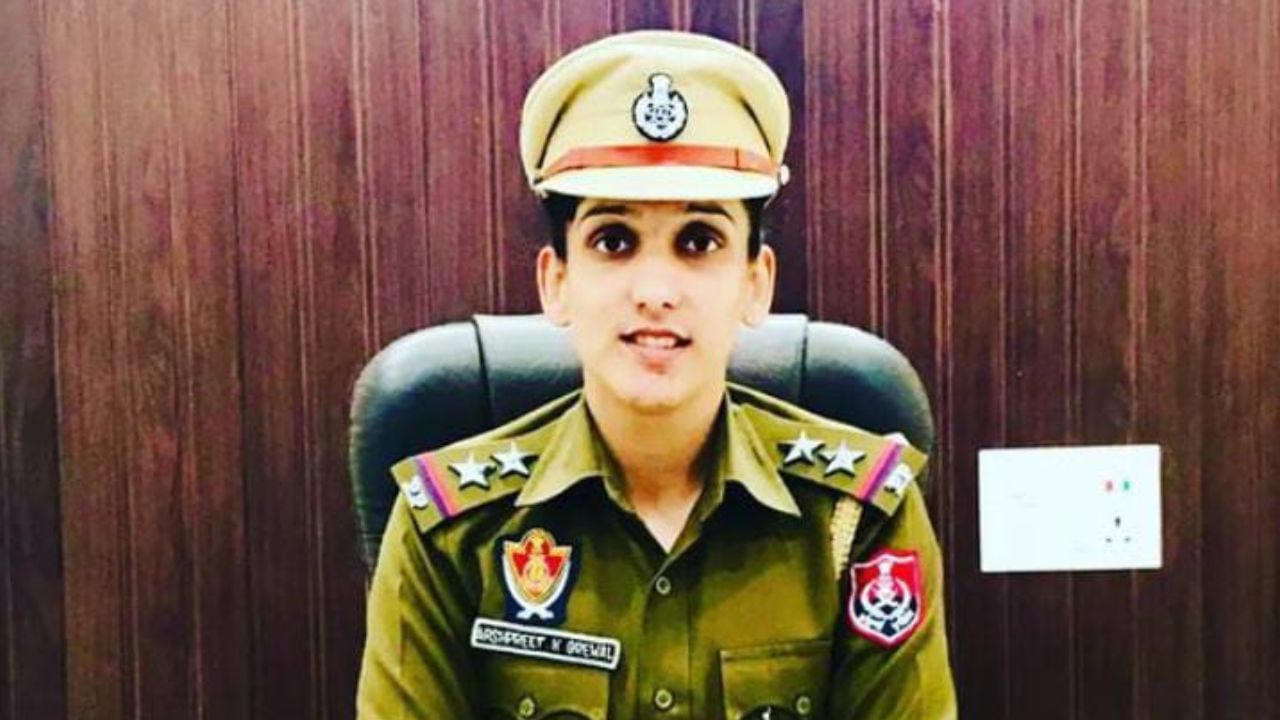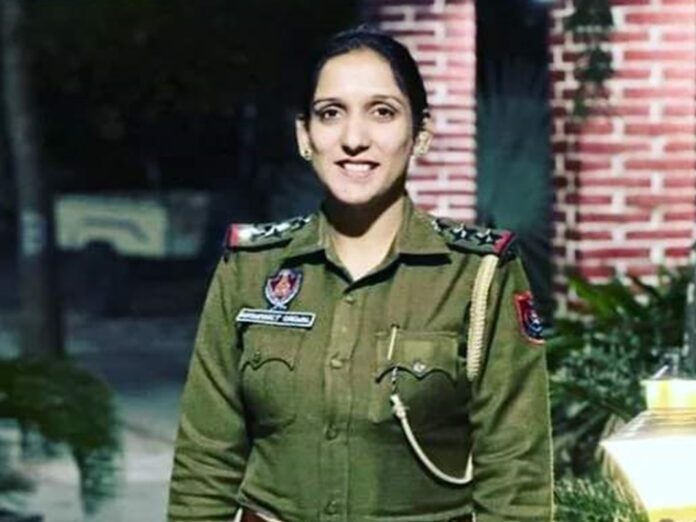In a shocking revelation, Punjab Police booked a woman inspector and two constables for allegedly releasing drug traffickers after accepting a bribe. The incident has raised serious concerns over rising corruption and the accountability of law enforcement in combating drug crimes. The Moga District police registered an FIR against Inspector Arshpreet Kaur Grewal, along with constables Gurpreet Singh and Rajpal Singh, who allegedly conspired to free two drug peddlers apprehended with 3 kg of opium after pocketing a Rs 5 lakh bribe.
Bribery Scandal Rocks Punjab Police: The Details of the Case
On October 1, Inspector Arshpreet Kaur Grewal, serving as the Station House Officer (SHO) at the Kot Ise Khan police station in Moga district, led a team that apprehended Amarjit Singh on Datewala Road. During the arrest, police reportedly recovered 3 kg of opium, implicating Amarjit along with his brother Manpreet and son Gurpreet. However, according to the FIR, Grewal and two constables allegedly conspired to release Manpreet and Gurpreet in exchange for a Rs 5 lakh bribe, mediated through a private individual. Instead of recording the full seizure, the police allegedly documented only 2 kg of opium, reducing the reported amount to downplay the scale of the crime.
The accused police personnel now face serious charges under multiple sections of the Prevention of Corruption Act, including Section 7 (public servant accepting a bribe) and Section 13(2) (criminal misconduct), as well as the Narcotic Drugs and Psychotropic Substances (NDPS) Act, specifically Section 18 (punishment for opium-related offences) and Section 59 (failure of duty or connivance with offenders). The FIR names Senior Constable Gurpreet Singh, who served as head munshi (chief clerk) at the Kot Ise Khan station, and Constable Rajpal Singh, posted at the Balkhandi police post, for their alleged involvement in aiding the release of the drug peddlers.
Moga Senior Superintendent of Police (SSP) Ajay Gandhi has confirmed the FIR and revealed that all three accused officers are currently absconding. He added that the police registered the case based on credible information and that further details would emerge once the suspects are apprehended.

Rising Concerns: Police Corruption and the Drug Menace
This incident is not an isolated case but rather part of a troubling pattern of corruption in law enforcement. For Punjab, which has long battled a significant drug problem, bribery scandals among police officers undermine efforts to control the trafficking of illegal substances. When officers, entrusted with enforcing the law, are themselves complicit in illegal activities, it severely compromises the trust citizens place in law enforcement.
Analysts suggest that financial inducements within police ranks often arise from a combination of factors, including inadequate salaries, perceived immunity from repercussions, and limited internal accountability. Corruption within the police not only creates loopholes in drug law enforcement but also fuels the drug supply chain, allowing traffickers and peddlers to operate with impunity.
The Punjab Police force has, on occasion, faced criticism for lacking the resources and support needed to combat the entrenched drug problem effectively. However, when those who hold public office are themselves involved in colluding with criminals, the situation becomes alarmingly difficult to rectify. A recent spike in corruption cases within Punjab’s law enforcement reveals a concerning trend of bribery among public servants, particularly those holding powerful positions.
The Inspector’s Controversial History
The bribery scandal involving Inspector Arshpreet Kaur Grewal follows her controversial career history. In June, a family from Bohana village accused Grewal of allegedly covering up the drug-related death of their 24-year-old son by labeling it a “heart attack,” a claim she denied. Her alleged involvement in this case has cast doubts over her integrity in drug-related investigations.
Public officials have also raised questions about the credibility of certain police officers within Punjab’s political and legal community. Grewal’s recent actions not only draw attention to her past but also raise questions about oversight within the police force. This incident has spurred public debate on the effectiveness of Punjab’s administrative structure in maintaining discipline among police ranks.

The Bigger Issue: Accountability in Law Enforcement
The unfortunate reality is that incidents of police accepting bribes to protect criminal elements are not rare in India. Experts and activists argue that inadequate internal oversight mechanisms enable corrupt officers to operate without fear of significant repercussions. With systemic gaps in the accountability of police personnel, corruption has become deeply ingrained within certain levels of the administrative structure.
The case of Inspector Grewal and her co-accused constables is emblematic of a larger crisis within India’s law enforcement agencies. As bribery and corruption remain persistent, public perception of the police force suffers, impacting trust and cooperation with law enforcement officials. It also demonstrates a concerning disconnect between public expectations of police behavior and the reality of operations within the force, particularly in regions like Punjab, where the drug crisis is acute.
Punjab’s struggle with narcotics has long been a challenge, and compromised law enforcement only exacerbates the issue. Cases such as this one highlight the pressing need for reforms within the police department to introduce stringent checks, promote transparency, and enforce a zero-tolerance policy against corruption. Enhanced oversight, along with mandatory accountability measures, could serve as deterrents against malpractices.
Impact on Public Trust and the Way Forward
For Punjab’s citizens, incidents like these erode the sense of security and confidence in the police force’s ability to combat drug-related crimes effectively. If corruption continues unchecked, there’s a genuine risk that organized crime and drug trafficking networks may grow stronger, putting society at greater risk. As incidents of bribery and corruption grow more frequent, there is a critical need for policymakers and law enforcement authorities to implement reforms to restore public confidence and ensure police integrity.
In a state as profoundly impacted by drug addiction as Punjab, even a single case of police corruption carries broader implications. To build a robust police force that can effectively combat drug-related crime, there must be a commitment to transparency and ethical conduct within the force. The case against Inspector Grewal and her colleagues serves as a reminder that accountability within law enforcement is essential if the police are to serve and protect society, rather than compromise its safety.

